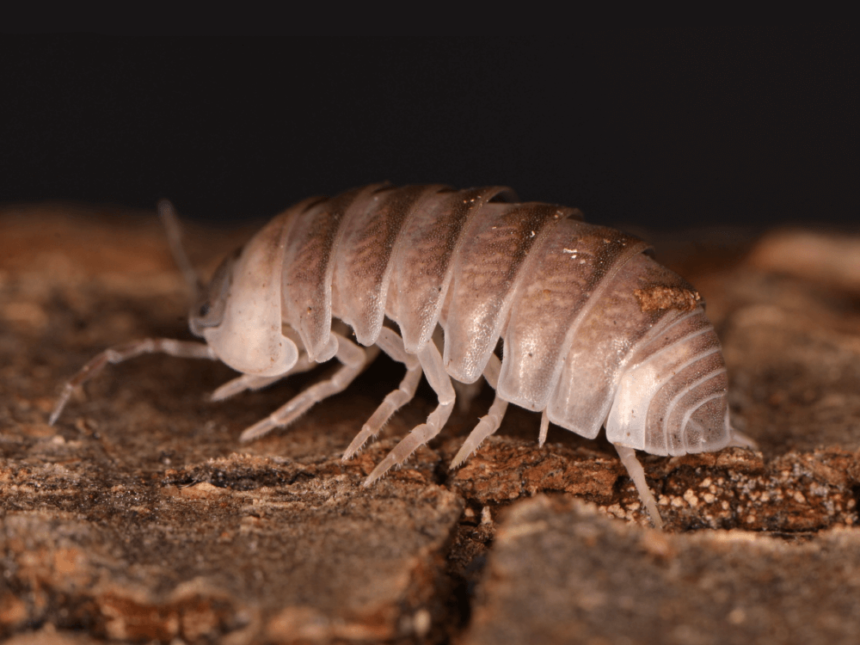Isopods, often overlooked and underappreciated, play a crucial role in maintaining the health of ecosystems. These diverse crustaceans, which include familiar species such as pillbugs and sowbugs, are nature’s tiny clean-up crew, diligently breaking down organic matter and recycling nutrients within their habitats. Found in a variety of environments ranging from coastal shorelines to forest floors, isopods contribute significantly to soil health and decomposition processes. Their unique adaptations, including a hard exoskeleton and the ability to thrive in diverse conditions, make them fascinating subjects of study in both ecological research and environmental management. Furthermore, the presence of isopods can serve as vital indicators of ecosystem health, as they are sensitive to changes in their surroundings. This article delves into the fascinating world of isopods, exploring their biology, ecological significance, and the essential functions they perform within their ecosystems. By understanding these remarkable creatures, we can gain insights into the intricate web of life that sustains our environment, highlighting the importance of preserving biodiversity and fostering a deeper appreciation for even the smallest inhabitants of our planet. Join us as we unravel the mysteries of isopods and their indispensable contributions to our natural world.
– Isopods play a vital role in ecosystems by decomposing organic material and recycling nutrients.
In various ecosystems, isopods serve as essential decomposers, breaking down organic matter such as fallen leaves, dead plants, and animal remains. This decomposition process not only aids in the breakdown of complex organic compounds but also facilitates the release of nutrients back into the soil. By converting decomposing materials into simpler substances, isopods enhance soil fertility, promoting plant growth and sustaining the overall health of the ecosystem.
Furthermore, isopods contribute to nutrient cycling, ensuring that essential elements such as nitrogen and phosphorus are made available to other organisms. Their activities help maintain the balance of terrestrial and aquatic systems, as they consume decaying material that might otherwise accumulate and lead to detrimental effects on the environment. In this way, isopods play a crucial role in maintaining ecological integrity and supporting biodiversity.
– These small crustaceans thrive in various environments, from oceans to terrestrial habitats like forests.
Isopods are remarkably adaptable creatures, capable of thriving in a wide array of environments, ranging from deep ocean waters to moist forest floors. This versatility is largely attributed to their diverse physiological adaptations, allowing them to occupy niches in both marine and terrestrial ecosystems. In marine environments, isopods can be found alongside coral reefs, in the depths of the ocean, and among tidal pools, while their terrestrial relatives, such as pillbugs, inhabit leaf litter, under logs, and in other damp areas. This adaptability not only enables them to exploit various food sources but also to respond to environmental changes, thereby enhancing their survival prospects across different habitats.
In forest ecosystems, isopods play a vital role in the breakdown of organic matter, facilitating nutrient recycling within the soil. Their presence in these environments is essential for maintaining soil health, as they help decompose leaf litter and other organic materials, promoting a rich and diverse microbial community. Consequently, isopods contribute significantly to ecosystem functioning, supporting biodiversity and ensuring the resilience of habitats. The ability of these small crustaceans to flourish in both aquatic and terrestrial settings underscores their ecological importance and highlights the interconnectedness of various ecosystems.
– Understanding isopod behavior can enhance biodiversity conservation efforts and promote healthier ecosystems overall.
By studying isopod behavior, conservationists can develop targeted strategies to enhance biodiversity and foster ecosystem resilience. Isopods contribute significantly to nutrient cycling and organic matter decomposition, which are fundamental processes for soil health and plant growth. Understanding their feeding habits, reproductive patterns, and habitat preferences can provide insights into the overall health of an ecosystem. Implementing conservation measures that protect their habitats, such as preserving leaf litter and moist environments, can lead to enhanced biodiversity that benefits a wide variety of species, including plants and other invertebrates.
Moreover, isopods serve as bioindicators, reflecting environmental changes and ecosystem stability. By monitoring isopod populations and behaviors, researchers can gain valuable data on the impacts of pollution, climate change, and habitat destruction. This information is crucial for developing effective conservation policies and practices aimed at restoring and maintaining balanced ecosystems. Ultimately, a comprehensive understanding of isopod behavior not only aids in the preservation of these unique organisms but also plays a critical role in promoting healthier ecosystems and enhancing biodiversity as a whole.
In conclusion, isopods play an invaluable role in maintaining the health and balance of various ecosystems. As nature’s tiny clean-up crew, these remarkable crustaceans not only contribute to the decomposition process by recycling organic matter but also support soil health and serve as a food source for numerous other species. Understanding their biology, behavior, and ecological significance is crucial for appreciating the intricate web of life that sustains our planet. As we continue to explore and study these fascinating organisms, we gain insights that can inform conservation efforts and promote a greater respect for the biodiversity that surrounds us. Isopods remind us of the essential roles even the smallest creatures play in our world, highlighting the interconnectedness of all living things.


